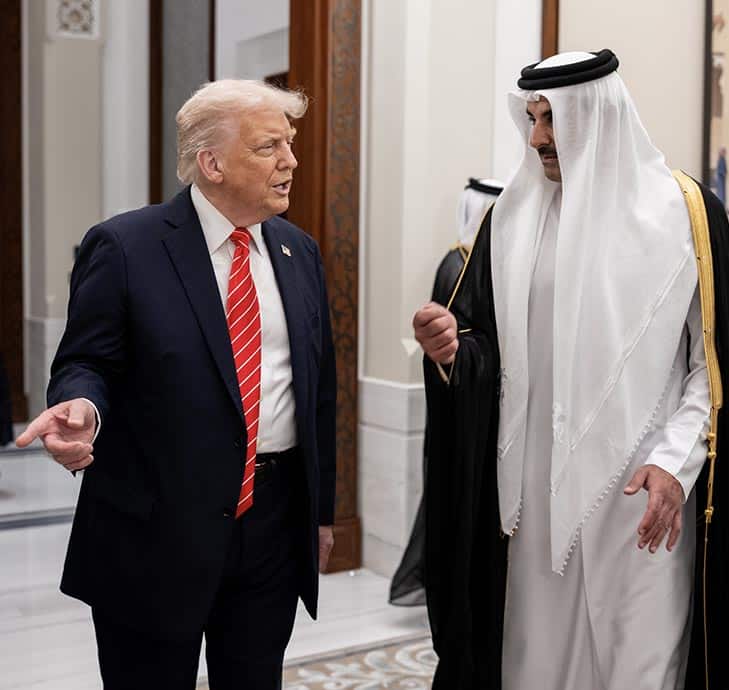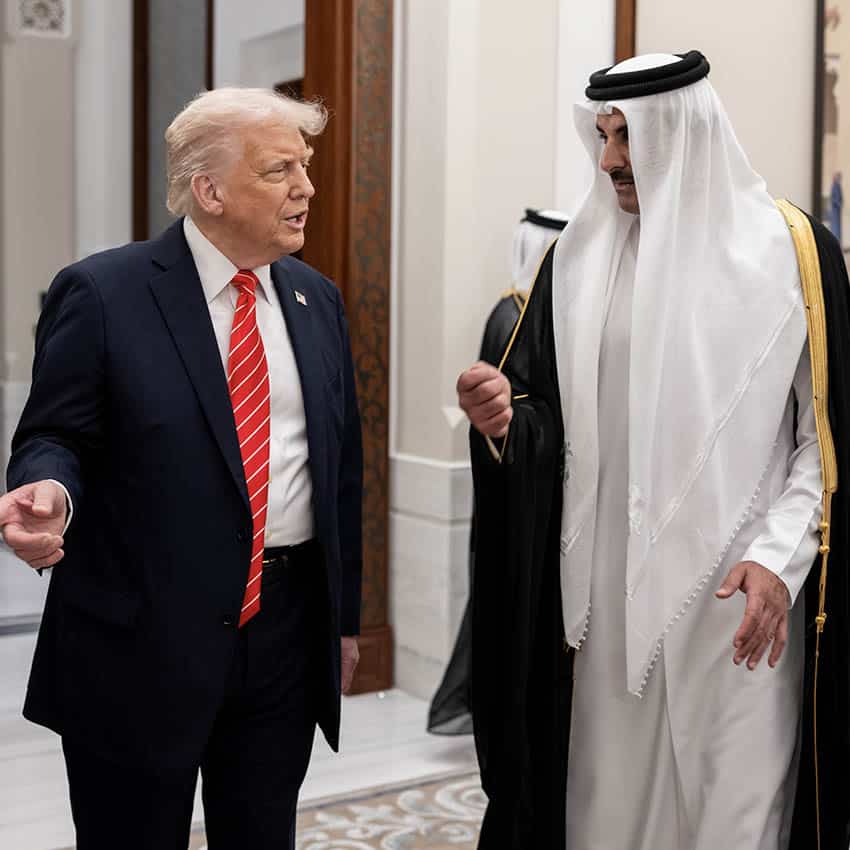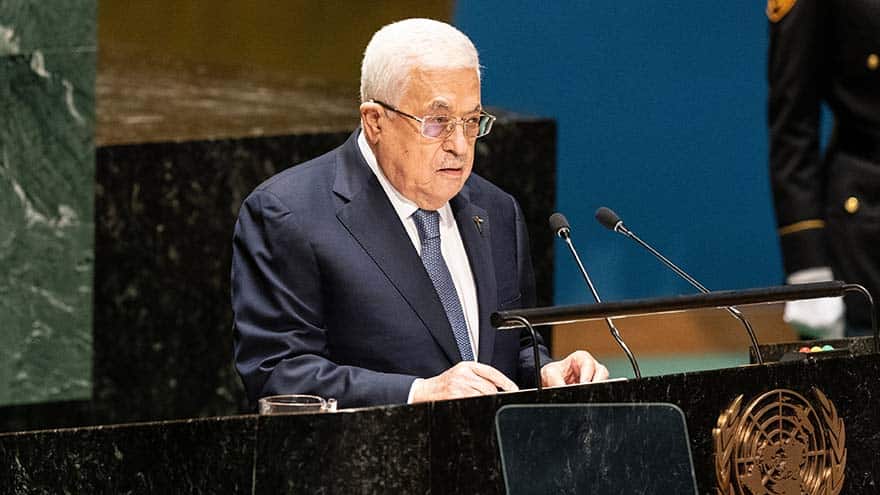The first stage of President Donald Trump’s “21-Point Plan” was made possible following the understandings reached through Turkish-Qatari-Egyptian mediation. Among the three mediators, Turkey played the most influential and significant role in pressuring Hamas.
The initiative led by President Trump relied on the commitment of Turkey and Qatar to “deliver the goods” — that is, to compel the terrorist organization to accept the plan, with emphasis placed on the first stage: the return of the living hostages and the deployment of IDF forces along the yellow line, effectively marking the end of the war.
President Trump resolved to bring the two-year war to an end, whether because he concluded that its continuation was futile — even from an Israeli standpoint — or because of fears, intensified after the Israeli strike in Doha, Qatar’s capital, that a serious escalation might jeopardize key American interests in the region. Such an escalation could have primarily thwarted Trump’s vision of shaping a new regional architecture based on the expansion of the Abraham Accords.
In practice, the president imposed the principles of his plan on the parties, while leaving the details of implementation to further negotiations. The first stage — the one that received the most concentrated effort in formulating the understandings — symbolizes, in his eyes, the most significant achievement, one he can present as the end of the war.
A Space of Opportunity for Extracting Gains
The American president understood the importance of Turkey and Qatar due to their influence over Hamas, and therefore chose to place them at the forefront, entrusting them with the mission of persuading the organization’s leadership. With this decision, Trump opened the door for Turkish and Qatari involvement in implementing the plan — meaning an active, perhaps even extensive, presence in the Gaza Strip, and a significant role in its reconstruction, including participation in the functioning of the trusteeship administration led by Tony Blair and in the international stabilization force.
However, it is doubtful that the president gave due consideration to the far-reaching implications of this move regarding the mediators’ own regional interests, and to the challenge it poses to Israel and the pragmatic Sunni states, particularly Egypt and Saudi Arabia.
Both Turkey and Qatar support the Muslim Brotherhood — including Hamas — and it follows logically that both will act to safeguard the vital interests of the terrorist organization.
Therefore, it must be assumed that they will work to preserve Hamas’s power and position as a key and influential player in the Palestinian arena, while setting the stage for its eventual control of the entire territory, as an alternative to the Palestinian Authority, not as its partner.
Both states understood President Trump’s high expectations of them. They did not hesitate to exert their full weight and pressure on Hamas — likely including threats of consequences in the event of noncompliance — to secure its agreement to the crucial first stage of the plan.
By implementing this stage, the door was opened for their presence in the Gaza Strip and for even deeper involvement in its future developments. However, from their perspective, there is no guarantee that these processes will unfold in the spirit of Trump’s plan.
Thus, it is reasonable to assume that Turkey and Qatar will find ways to enable Hamas to prolong negotiations over the following stages, creating for it new opportunities to extract concessions from Israel — by persuading the American president and his envoys, and by leveraging their success in obtaining Hamas’s agreement to the plan’s first stage.
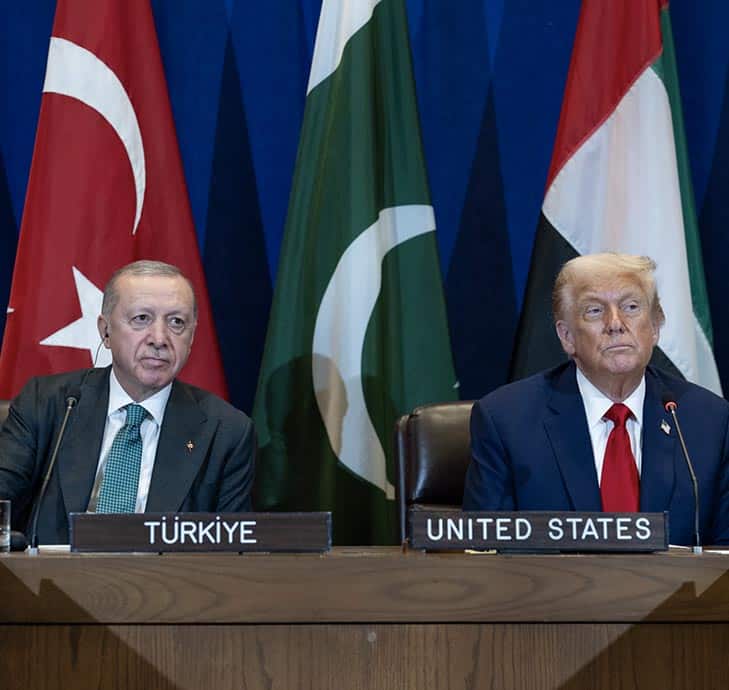
The Turkish Expansion and Israel’s Interests
If President Trump loses interest in continuing the process required to implement the whole plan—believing that he has already achieved his goal of freeing the hostages, ending the war, and paving the way for a new regional architecture through the expansion of the Abraham Accords—Turkey and Qatar could then assist Hamas in securing significant gains. These could include engineering formulas and proposals that would neutralize the idea of disarming the organization, fully demilitarizing the Gaza Strip, and excluding Hamas from any involvement in “the day after.” By their very presence in Gaza and their active role in the reconstruction process, both countries will succeed in consolidating their positions: Qatar will strengthen its regional standing, using its influence—along with its upgraded status as a U.S. ally—to bolster its power vis-à-vis its Gulf rivals, Saudi Arabia and the United Arab Emirates. It is also likely to expand its influence over Egypt, given Cairo’s special and sensitive interest in Gaza.
As for Turkey, this development would be even more significant. The hegemonic aspirations of President Recep Tayyip Erdoğan—aspirations he makes no effort to conceal—to deepen Turkish influence and presence in the region, constitute a storm cloud and a genuine threat to Israel, Egypt, Saudi Arabia, and the UAE. Turkey’s growing involvement in Gaza, including a potential physical presence there, combined with its deepening entrenchment in Syria and Erdoğan’s close ties with President Trump, would enable him to advance several major regional initiatives that could constrain the strategic moves of Israel and the pragmatic Sunni states while simultaneously threatening the vital interests of Cyprus and Greece.
For instance, the potential establishment of a seaport in Gaza with a Turkish naval presence, or new maritime agreements with the Palestinians and Syria, could endanger the economic freedom of action of Israel, Cyprus, and Greece in the Eastern Mediterranean, and also impact Egyptian interests in this context.
Turkey has already led several significant regional initiatives—for example, recognizing General Khalifa Haftar, who controls eastern Libya, and establishing cooperative ties with him while simultaneously maintaining relations with Libya’s western government. Similar moves have occurred in East Africa, including the construction of a military seaport in Syria. In light of all this, a Turkish foothold in Gaza would turn Erdoğan’s neo-Ottoman vision into reality. Such a significant expansion of Turkish control and influence, together with closer ties to the United States and the possible acquisition of F-35 and F-16 aircraft, as well as Turkey’s unique position as a NATO member and its special relationship with Russia, would make Turkey one of the most powerful—perhaps the most powerful—players in the region, capable of constraining Israel’s maneuvering room and harming its vital interests.
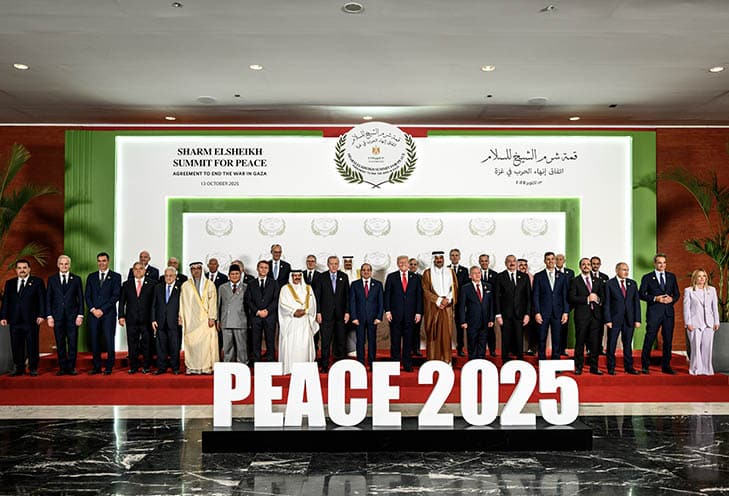
Alongside the emerging threat potential from Turkey, there is also an opportunity embedded in these developments. Turkey’s desire to expand its involvement in Gaza necessarily requires Israel’s consent and cooperation. The special and close relationship between Israel and the United States—rooted in the personal bond between Prime Minister Benjamin Netanyahu and President Trump—enables intimate coordination and the enlistment of American support to ease tensions along the Jerusalem-Ankara axis. Israel has a vital interest in improving its relations with Turkey, and perhaps Trump’s decision to bring Erdoğan to the forefront of the regional stage offers a chance for change.
As noted, Turkey and Qatar play an essential role in advancing Trump’s plan. Their influence over Hamas is significant, and it is crucial to channel that influence toward implementing the “21-Point Plan.” At the same time, it must be remembered that both countries are aligned with and support the Muslim Brotherhood. Both are motivated to protect the vital interests of the terrorist organization, including ensuring its continued role as a significant and influential actor in the Palestinian arena. Each also seeks to leverage its involvement and influence in the Palestinian sphere to accelerate rapprochement with the United States and strengthen its regional position in its own way. However, Turkey’s hegemonic ambitions and Qatar’s aspirations do not align with the vital interests of Israel, Egypt, and Saudi Arabia.
Therefore, this is a critical moment for Israeli leadership, which must find a way to solidify cooperation with Saudi Arabia and Egypt and work toward forming an axis capable of curbing or moderating the influence of Turkey and Qatar. It is equally important to find a way to persuade the American president to remain focused, resolute, and decisive regarding his plan—and to convince the White House administration to prioritize Israeli and regional interests over those of the Turks and Qataris. At the same time, Israel must correctly identify the new window of opportunity that could lead to improved relations with Turkey and the establishment of cooperative mechanisms that could help implement Trump’s plan in all its stages—and beyond, in strengthening bilateral ties between the two nations.
